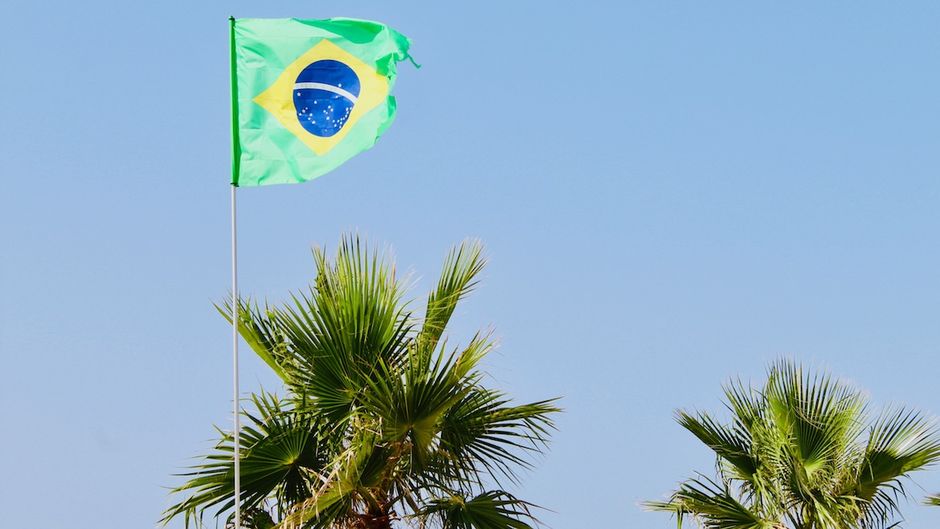In Brazil, “polarisation has not allowed the rise of a true third way”
The country concludes an electoral process that does not resolve popular polarisation, one of the main challenges that the new government will have to face.
Protestante Digital · CAMPINAS · 28 OCTOBER 2022 · 15:10 CET

Brazil concludes an election marked by the almost personal confrontation between Jair Bolsonaro and Lula da Silva, which has revealed a scenario of social polarisation that may not end with just a vote.
Although Lula won the first round (48%), Bolsonaro's party secured control of the Chamber of Deputies and the Senate.
Only five points apart, both candidates have focused their campaign over the last few weeks on winning over the voters of other parties that did not pass the first ballot.
In 2018, the evangelical vote was key to Bolsonaro's victory. The hitherto president has once again won the majority of those votes in the first round, while Lula has obtained the support of approximately 35% of this part of the population.
Lula da Silva has released a letter to evangelicals promising, among other things, that churches will not be closed and that there will be no public unisex bathrooms, in reference to some fake news that had appeared on social media. He also said that the family “is something sacred” for him.
Paulo Nogueira, PhD in Theology from the University of Heidelberg and postdoctoral researcher in History at the Centre for Strategic Studies at the State University of Campinas, spoke to Spanish news website Protestante Digital ahead of the second round of the elections.
Question. How are the current elections going?
Answer. The electoral race continues to be even more polarised than the previous one.
If in 2018 Bolsonaro was a surprise, an outsider, now he has consolidated his leadership on the far right, in addition to counting on the public resources in his campaign.
If he wins, he will have massive support in the national congress, as his party obtained a good result [in the first round].
Even if he is defeated in the second round, “Bolsonarism” will not disappear, it will remain an articulate and militant political force.
Q. People in Europe only know two names, Bolsonaro and Lula. And it seems that the first round has confirmed this trend.
A. The third way did not work. Simone Tebet only got 4% of the vote in the first round, and his conservative profile does not guarantee that his votes will go to Lula. Ciro Gomes has had a terrible campaign and has also been harshly contained by the Workers' Party (PT).
In other words, polarisation has not allowed the rise of a real third way.
Q. Both Lula and Bolsonaro are controversial for large sectors of the population. What factors are likely to determine the vote in Brazil?
A: Bolsonaro and Lula are controversial, but also charismatic for a certain type of voters. There is a mystification of Lula as a leader of the left, of trade union movements, and someone connected to the poorest.
Bolsonaro attracts voters with a more traditional religious, rural, business and conservative profile, who seek to defend the traditional values of family and patriotism.
Polarisation crystallises those discourses: Lula had partnerships with contractors and businessmen, while Bolsonaro is far from being a religious man and defender of traditional morals.

Q. What issues are getting most of the attention in this election campaign?
A. Campaigns are about speeches, not reality. Lula recalls the past, his two governments in the 2000s, which were periods of popular consumption and relative prosperity.
Bolsonaro has a more defensive discourse: he protects Brazil from a return to corruption and association with communism.
There is little debate about economic, social and ecological problems. It is a campaign of accusations and repetition of agendas.
Q. But the winning candidate will face a number of challenges
A. The next government will have to deal with a society that, in addition to being historically unjust and unequal, is in debt and with a fragile economy.
The winner of the elections will not easily be able to fulfil his promises.
Q. There is much talk about the role of the evangelical vote in deciding the election
A. The left has problems analysing the evangelicals. The PT dialogues well with intellectuals, but not with evangelicals. It does not understand their plurality, nor their language.
Sometimes evangelicals have to face uncomfortable dialogues, at others they become scapegoats. The left does not see that women, blacks, and workers on the outskirts are also evangelicals in their identity.
Bolsonaro is elected with the conservative evangelical vote, but also with the conservative Catholic one. In the interior of São Paulo and in the south of Brazil there is no evangelical majority, and yet Bolsonaro won.
Trying to dialogue with evangelicals through actions organised by intellectuals, artists and market analysts every four years leads nowhere. It has to be a long and patient dialogue.
Bolsonaro has many important leaders as allies. But evangelicals are fragmented in many small churches. How, then, do we assess the success of these alliances? How do we define the evangelical vote?
Conservative Brazil is as much evangelical as it is Catholic and spiritualist. There are variations, but the conservative base is common. Brazilian society is conservative.
Published in: Evangelical Focus - world - In Brazil, “polarisation has not allowed the rise of a true third way”
Since you are here…
Evangelical Focus is a news and opinion platform that brings together Christians from across Europe and other parts of the world. We need the support of our readers to make this media project sustainable in the long term. You can support our work! Read about Evangelical Focus’s sustainability here.
Would you like to support the work of Evangelical Focus?
Use one of these methods. You can also transfer your donation to “Areópago Protestante / Evangelical Focus” IBAN: ES8521000853530200278394 (Swift / BIC: CAIXESBBXXX). Subject: “Donation Evangelical Focus”
